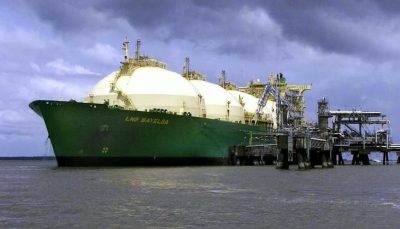
Nigeria’s bid to overturn a $380m award to oil trading firms Glencore and Vitol was unanimously rejected on 16 April by a three-member Appeal Court panel in London.
Discussions are currently ongoing in Nigeria on whether an appeal should be filed before the UK Supreme Court, government sources tell The Africa Report. However, a spokesperson for Nigerian Liquefied Natural Gas (NLNG) declined to comment.
Failure to deliver
NLNG is a joint venture of four oil firms. The Nigeria National Petroleum Company (NNPC) – the national oil firm – holds 49%, while Shell owns 25.6%. Total and ENI hold 15% and 10.4% respectively. Trading firm Taleveras had entered into a contract with NLNG to supply a number of crude cargoes in 2020. Taleveras in turn pre-sold the cargoes to Glencore and Vitol in anticipation of gas promised by NLNG.
However, the Nigerian government failed to deliver 19 cargoes of liquefied natural gas.
Vitol and Glencore thus sued Dubai-based Taleveras which in turn instituted legal action against the Nigerian government in the case Taleveras v. Nigeria LNG Limited. Vitol eventually concluded with a $233m award while the arbitral claims in the Glencore arbitration (which seemingly remains pending) are for $120m.
The 16 April judgment by the appellate court was rendered by Lord Justice Phillips, on behalf of a unanimous bench also comprising Justices John Warby and James Zacaroli, according to IAReporter.
String of losses
In the latest ruling, the UK appellate court held that the decision of the London Court of International Arbitration was binding on all parties and declined to issue a declaration that Nigeria was not liable for certain sums under the arbitral ruling.
Specifically, NLNG was ordered to hold Taleveras harmless in view of upcoming adverse awards in downstream arbitral disputes between Taleveras and its buyers.
Earlier, High Court Judge Mike Pelling first reviewed whether, as argued by NLNG, the award’s dispositif included a requirement that the Vitol and Glencore awards must explicitly endorse the indemnification of Taleveras by NLNG.
After finding that a subsequent interpretation decision by the tribunal had no bearing on this question, Judge Pelling concluded that there was no endorsement requirement in the award.
Nigeria had argued that once the Vitol tribunal had rendered its award, it had been functus officio and could not be revived by the parties. Judge Pelling disagreed.
On appeal, Nigeria first faulted Judge Pelling for failing to engage with two authorities before him: London Steam-Ship v. France, and ZCCM v. Kansanshi. It argued that these authorities made clear that an award did not need a dispositif, and that orders could be found in any part of an arbitral decision.
Justice Phillips held, however, that the lower court had been entitled to ignore these authorities, since the fact that some “awards” do not contain a dispositif was of no particular help to interpret awards that do.
Nigeria has in recent years paid huge reparations due to contract breaches. The country agreed to pay $496m to settle a multibillion dollar claim by India’s Global Steel Holdings Limited in 2022.
It is currently battling a $2.3bn case for cancelling an electricity contract awarded to Sunrise Power and Transmission Company. (The Africa Report)

